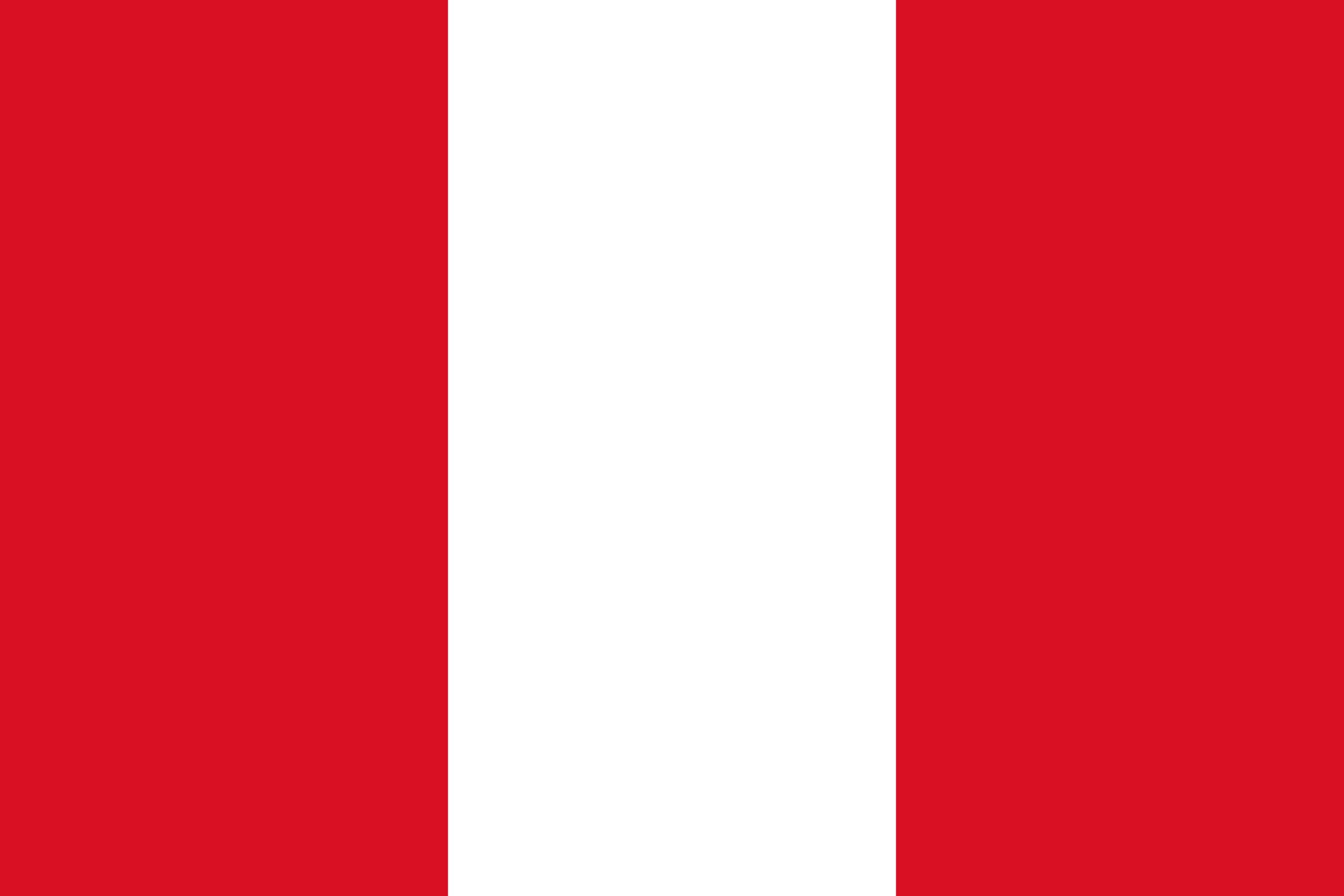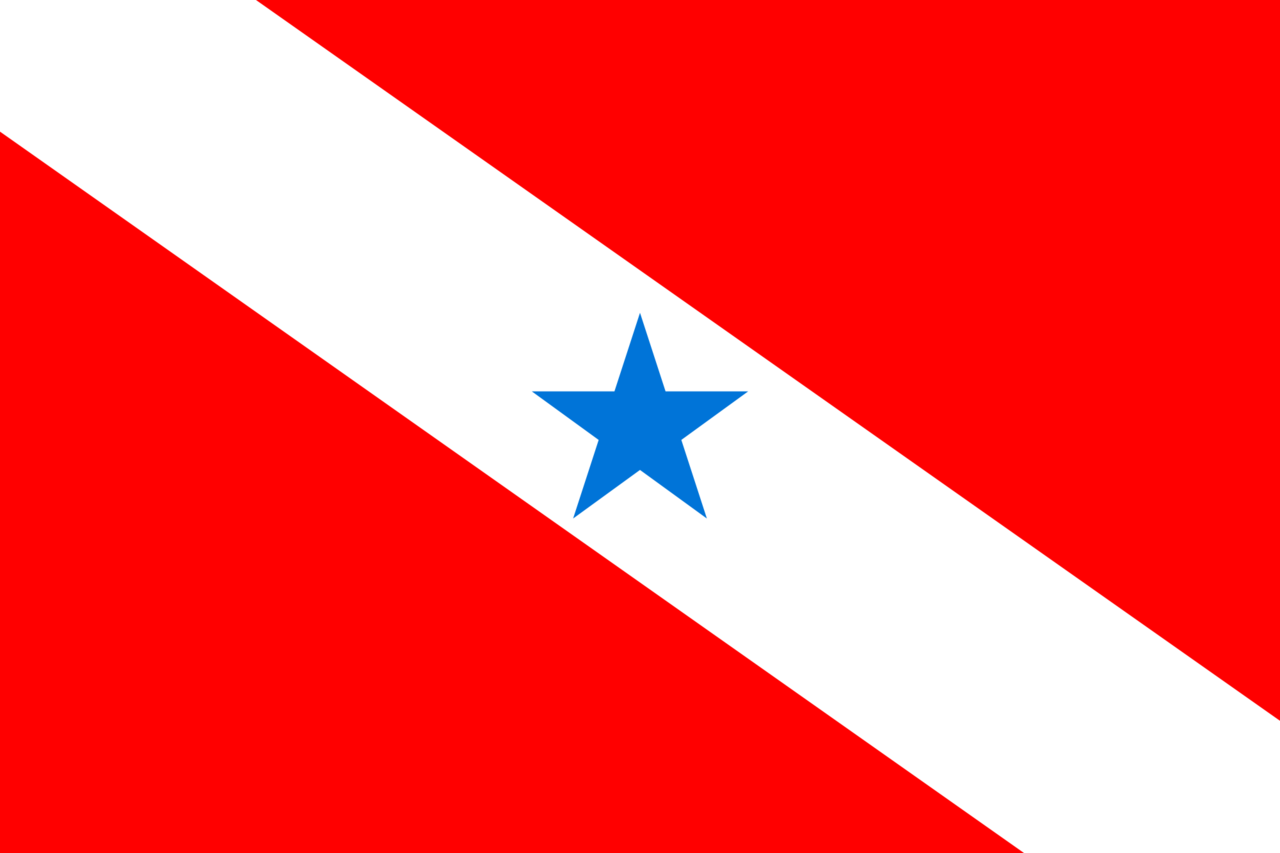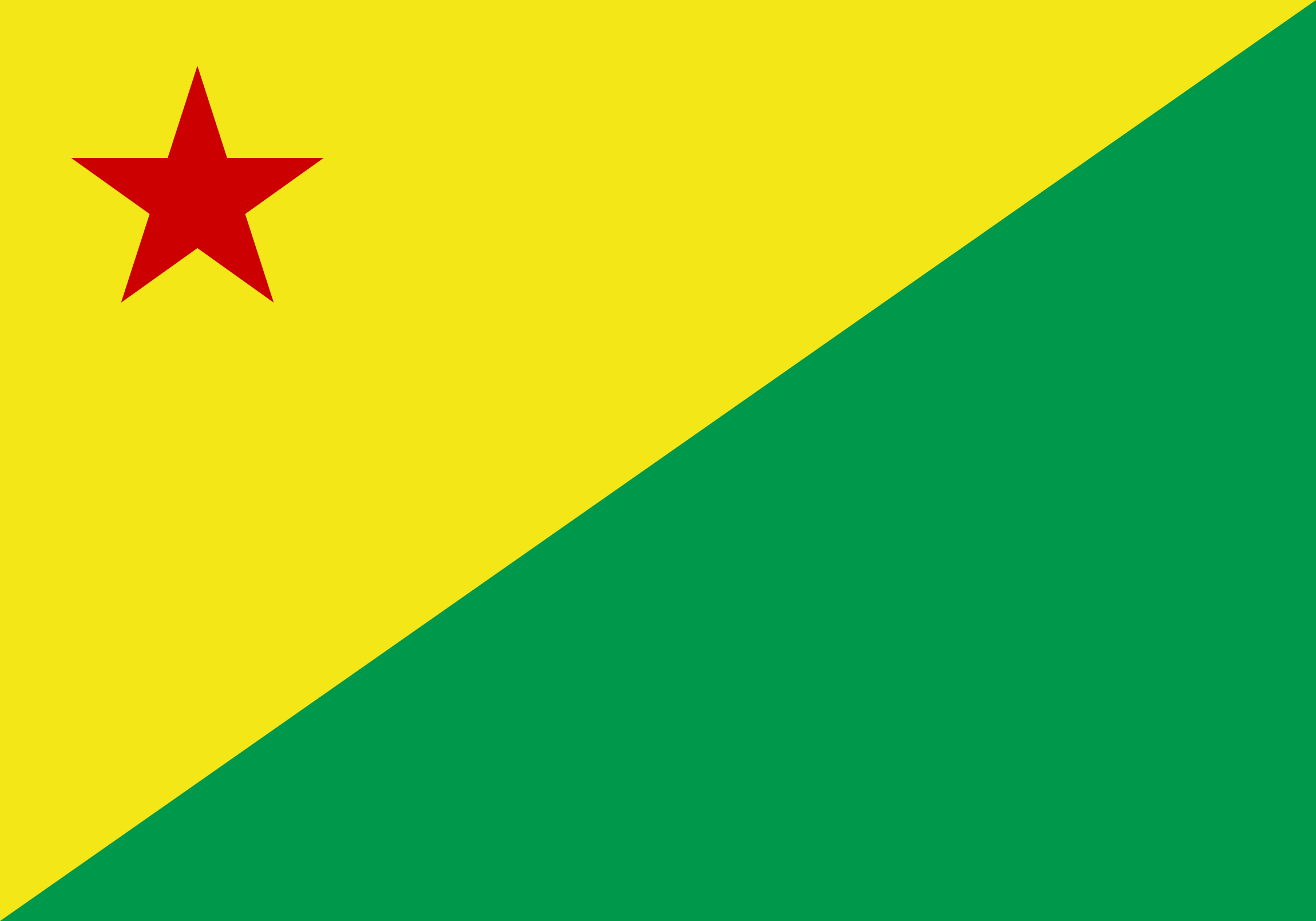Entering 2025 with Strong Momentum
Following the recent publication of Bhutan’s TREES Concept, we’re thrilled to be starting the New Year with 25 jurisdictions participating in ART, whose forests collectively cover 400 million hectares, an area twice the size of Mexico. 2024 marked a number of significant milestones – including the world’s first corresponding adjustment reported to the UNFCCC for TREES Credits as well as the submission of the first TREES Concept Note for an Indigenous-led program. The momentum for jurisdictional REDD+ has never been stronger!
A huge thank you to all of our stakeholders for your dedication to protecting and restoring forests at scale. Through our continued work together, we are looking forward to a big year ahead.
ART NEWS
ART’s Standard,TREES, Undergoing Planned Review
6 January 2025
ART is currently undergoing a review of The REDD+ Environmental Excellence Standard, TREES. ART’s governance requires this review every three years to build on the experiences gained implementing TREES and to continue to align with emerging best practice. In 2024, the ART Secretariat organized three Regional Dialogues with Indigenous Peoples and Local Communities, together with partners ANECAP, CIPRED, and REPALEAC, as part of the review process. The ART Secretariat is currently conducting additional targeted dialogues with key stakeholders to hear their perspectives on certain elements of TREES. The ART Secretariat and ART Board will then use that feedback to undergo a formal review of TREES, with a draft revised version planned to be shared for public comment in Summer 2025.
ART to Publish New Co-Benefits Certification for Public Comment
6 January 2025
ART is developing a co-benefits certification scheme to capture the values of jurisdictional REDD+ beyond carbon. This optional certification will provide a transparent and verifiable framework for jurisdictions to showcase the broader biodiversity, climate, and cultural benefits of their REDD+ programs in addition to emission reductions and removals from protecting and restoring forests at scale. The certification will be released for public comment early this year.
ART Earns CCP Approval for TREES Crediting Level from ICVCM
15 November 2024
In November, ART earned Core Carbon Principle (CCP) approval for the TREES Crediting Level from the Governing Board of the Integrity Council for the Voluntary Carbon Market (ICVCM). The CCP label, now active in the ART Registry, is applied to credits issued to programs verified for conformance with this crediting approach. Three jurisdictions (Costa Rica, Ghana and Vietnam) are currently in validation and verification using ART’s TREES Crediting Approach and ART anticipates another six jurisdictions to begin validation and verification in the coming months. These nine jurisdictions are expected to be issued over 120 million TREES Credits.
25 JURISDICTIONS!
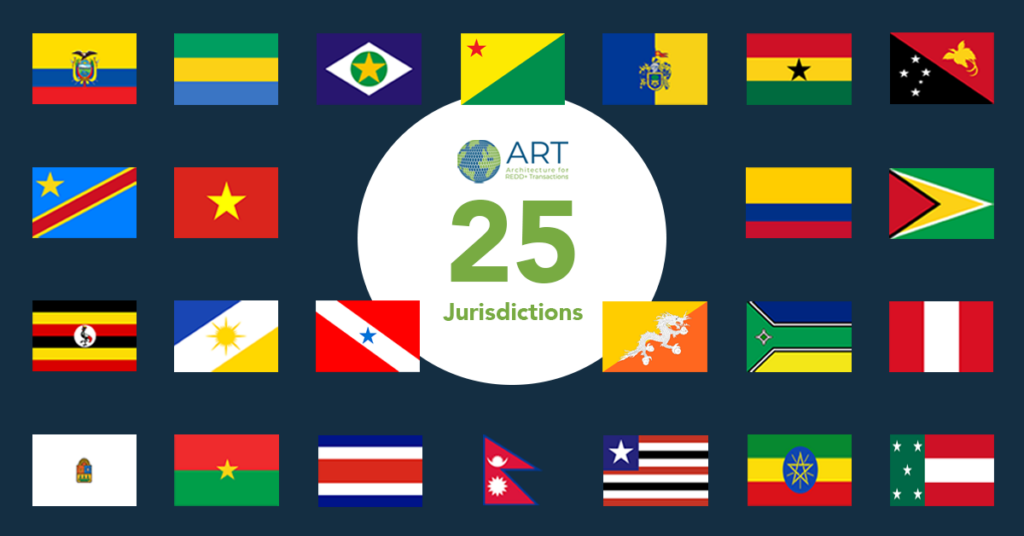
ART recently received five new TREES Concept submissions, which are now posted on the ART Registry: Acre, Brazil; Pará, Brazil; Yucatan, Mexico; Bhutan; and the world’s first Indigenous-led Jurisdictional REDD+ program, in Peru (see below for more details).
The updated number of jurisdictions listed with ART is now 25, which have a combined total of 400 million hectares of forest cover, an area twice the size of Mexico. This continued momentum for jurisdictional REDD+ is extremely encouraging, because to achieve global results, it is essential to operate at scale.
Four jurisdictions are currently undergoing validation and/or verification: Costa Rica, Ghana, Guyana, and Vietnam.
Spotlight on Peru
During New York Climate Week last September, the Peru Indigenous Peoples Group — which includes ANECAP, AIDESEP and CONAP — and the Peruvian Ministry of the Environment (MINAM) made history by submitting the world’s first Indigenous-led Jurisdictional REDD+ Concept Note to ART.
This milestone signifies not only a step forward in protecting forests, but also a recognition of Indigenous rights and the crucial role that Indigenous knowledge and governance play in forest conservation.
The pathway to this opportunity was made possible through an update in TREES 2.0, released in August 2021, that permitted the inclusion of one or more recognized Indigenous Peoples territories as part of a national government’s submission to ART.
Indigenous Peoples territories are also eligible to qualify as “high forest, low deforestation” (HFLD) and therefore use TREES 2.0’s optional HFLD crediting approach, which may better reflect their historical performance in protecting their forests and the ongoing activities needed to continue mitigating the deforestation and degradation threats faced.
CASE STUDY: JURISDICTIONAL REDD+ in GUYANA

TREES offers a carbon crediting pathway to support the country of Guyana to protect its forests while generating revenue for the priorities of Indigenous villages and for low-carbon development, creating a new financial model for countries with tropical forests around the world.
ART recently published a case study on Guyana’s jurisdictional REDD+ program.
Highlights include: 18 million hectares – 87% of Guyana – is covered by tropical forest, storing 21.8 billion tonnes of CO2e. In February 2024, ART issued 7.14 million 2021 TREES Credits to Guyana, and Guyana became the first government to report a corresponding adjustment to the UNFCCC for the associated emission reductions. This accomplishment builds on Guyana being the first country in the world to be issued TREES Credits by ART in December 2022 – 33.47 million verified credits for its work to actively protect its forests 2016-2020. The “High Forest, Low Deforestation” (HFLD) crediting approach allows Guyana to demonstrate the effectiveness of its jurisdictional REDD+ program and enables it to conserve its forests as development pressures increase. At least 15% of revenue from credit sales goes directly to Indigenous people and local communities for activities of their choice; 85% of revenue will be used for land titling for Indigenous villages, renewable energy, repairing canals, and protecting against climate change. Download the full case study here>>>
FEATURED NEWS
Brazil’s Tocantins state to offer $430 million in carbon credits
REUTERS, 14 November 2024, Jake Spring
Carbon markets must recognize Indigenous ‘high forest, low deforestation’ areas (commentary)
MONGABAY, 24 October 2024, Fermin Chimatani Tayori and Onel Masardule
Indigenous Communities Need Access to a High-Integrity Carbon Market (Commentary)
NEWSWEEK, 28 November 2024, Tuntiak Katan
No more broken promises. At COP29 we must act to conserve forests through carbon markets (Commentary)
REUTERS, 13 November, Gabriel Labbate
NEW RESOURCES
ART’s Primer on Its Approach to High Forest, Low Deforestation (HFLD) Crediting
HFLD jurisdictions have historically low deforestation rates, so they have not been prioritized for climate financing, even though they face consistent and mounting deforestation pressures. TREES offers qualifying HFLD jurisdictions a conservative approach to participate in global voluntary and compliance carbon markets. This approach also provides a much-needed pathway for Indigenous Peoples whose historic successful stewardship of their lands often prevents them from accessing market finance.
Download Primer>>>
ART’s Primer on Additionality
Additionality is a central concept for the carbon market. In general, a result is considered additional if it exceeds emission reductions or removals that would otherwise occur in a conservative, business-as-usual scenario. For REDD+ this means that the activities reduced emissions and/or increased removals at higher levels than would have occurred in the absence of REDD+ implementation (i.e., the business-as-usual scenario). Additionality is key in ensuring the issuance of high-quality carbon credits.
Download Primer>>>
ENGAGEMENT & OUTREACH
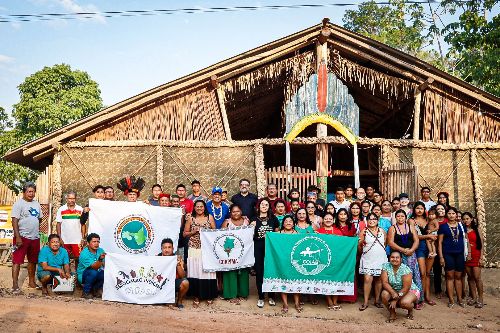
November 2024 – Third Regional Workshop on Jurisdictional REDD+
In November, COIAB and ART co-organized their third workshop on Jurisdictional REDD+ and the TREES Standard. The event brought leaders from the states of Pará, Amapá and Maranhão in the Brazilian Amazon for a hands-on learning experience that covered the carbon market, Indigenous participation in jurisdictional REDD+, emission reductions and carbon credit calculations, safeguards and third-party verification. Full post here>>>
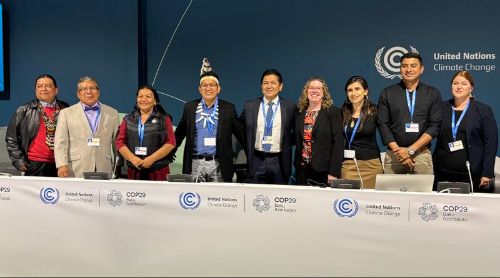
November 2024 – COP29 Panel on Capturing Benefits of Jurisdictional REDD+ Beyond Carbon
During a COP29 side event, Gustavo Sánchez Valle of Red Mocaf Nacional, Fermín Chimatani Tayori of ANECAP, Avanilson Karajá of COIAB and Onel Masardule of FIAY presented the work of the socio-cultural committee that is collaborating with ART to develop a co-benefits certification scheme to capture the value of jurisdictional REDD+ Beyond Carbon. Watch the full video here>>>
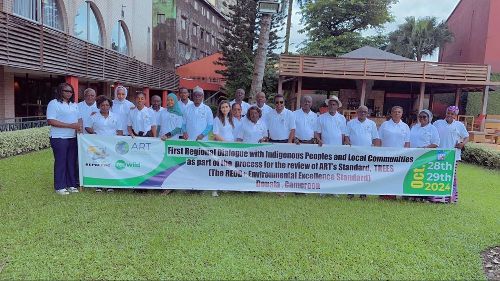
October 2024 – Third Regional Dialogue with Indigenous Peoples and Local Communities
In October, the Network of Indigenous People and Local Communities for the Sustainable Management of the Forest Ecosystems in Central Africa (REPALEAC) and ART cohosted the third Regional Dialogue with Indigenous Peoples and Local Communities as part of the process to review our standard, TREES. Full post here>>>
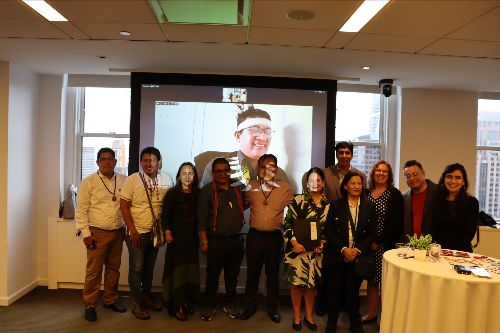
September 2024 – ART at Climate Week NYC
This year’s Climate Week featured one of the largest and most diverse schedules of programming ever for jurisdictional REDD+. Mary Grady, Christina Magerkurth, Lucia Madrid, Julia Paltseva and Franklin Paniagua were on the ground participating in no fewer than seven events on JREDD+ over the course of the week. Full post here>>>
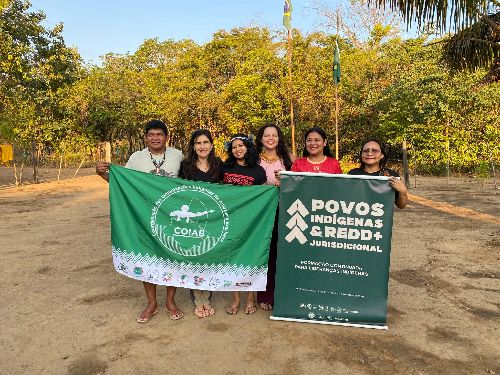
September 2024 – Field workshop with Indigenous leaders from Tocantins, Roraima, and Amazonas
Following a successful “train-the-trainer” workshop in Manaus, Brazil this past May, ART — working with COIAB and ARPIT-Tocantins — completed the first field workshop with Brazilian Indigenous leaders from Tocantins, Roraima, and Amazonas. Full post here>>>
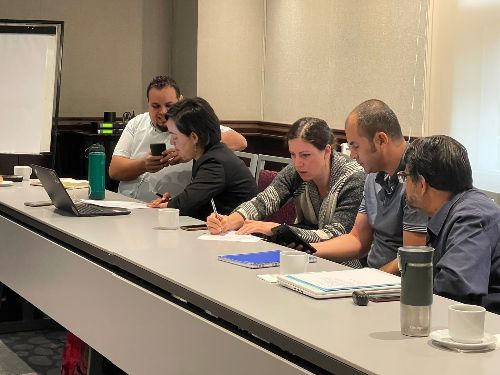
September 2024 – IP & LC Workshop in Jalisco
Lucia Madrid, ART’s Associate Director for Policy, presented at a workshop on the “Rights of Indigenous Peoples and Local Communities in Jurisdictional REDD+ Processes and Carbon Markets” in the Mexican state of Jalisco, organized by the Red Mexicana de Organizaciones Campesinas Forestales, A.C. Full Post here>>>
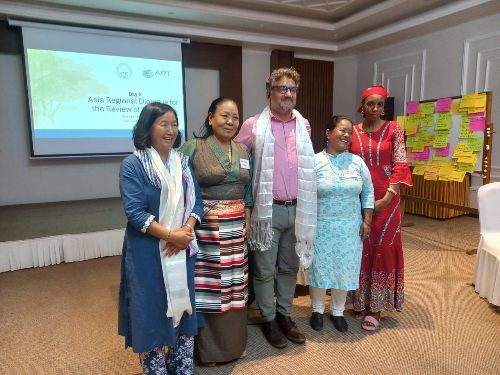
August 2024 – Second Regional Dialogue with Indigenous Peoples and Local Communities
The Center for Indigenous Peoples’ Research and Development (CIPRED) and ART cohosted the Second Regional Dialogue in Kathmandu with Indigenous Peoples and Local Communities as part of the process to review TREES. Full post here>>>
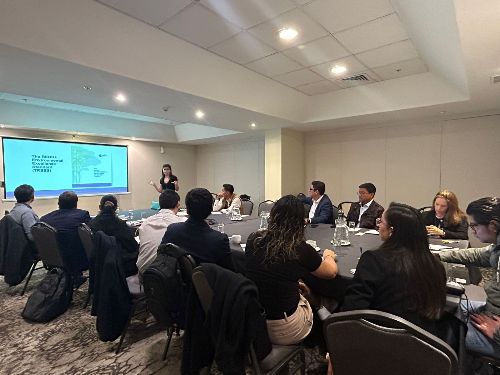
August 2024 – Learning Lab on Finance with Integrity for Forests in Latin America and the Caribbean
ART led a session during the Learning Lab on Finance with Integrity for Forests in Latin America and the Caribbean, hosted by the Ministerio del Ambiente – Perú, the International Affairs Bureau, Korea Forest Service and UN-REDD Programme. Full post here>>>
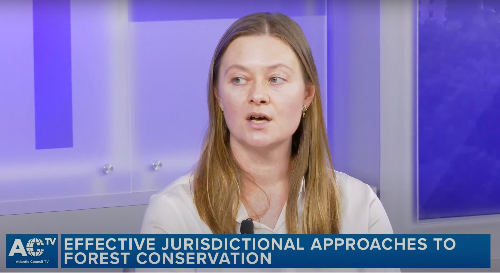
July 2024 – Atlantic Council Global Energy Center
Julia Paltseva, a Senior Manager at ART, spoke on a panel at the Atlantic Council Global Energy Center on jurisdictional approaches to tropical forest protection and restoration. Watch the recording here>>>
ART ON LINKEDIN
ART is on LinkedIn! Follow us for updates and insights about jurisdictional REDD+ and innovations that unlock finance for forest countries to protect and restore their forests.
